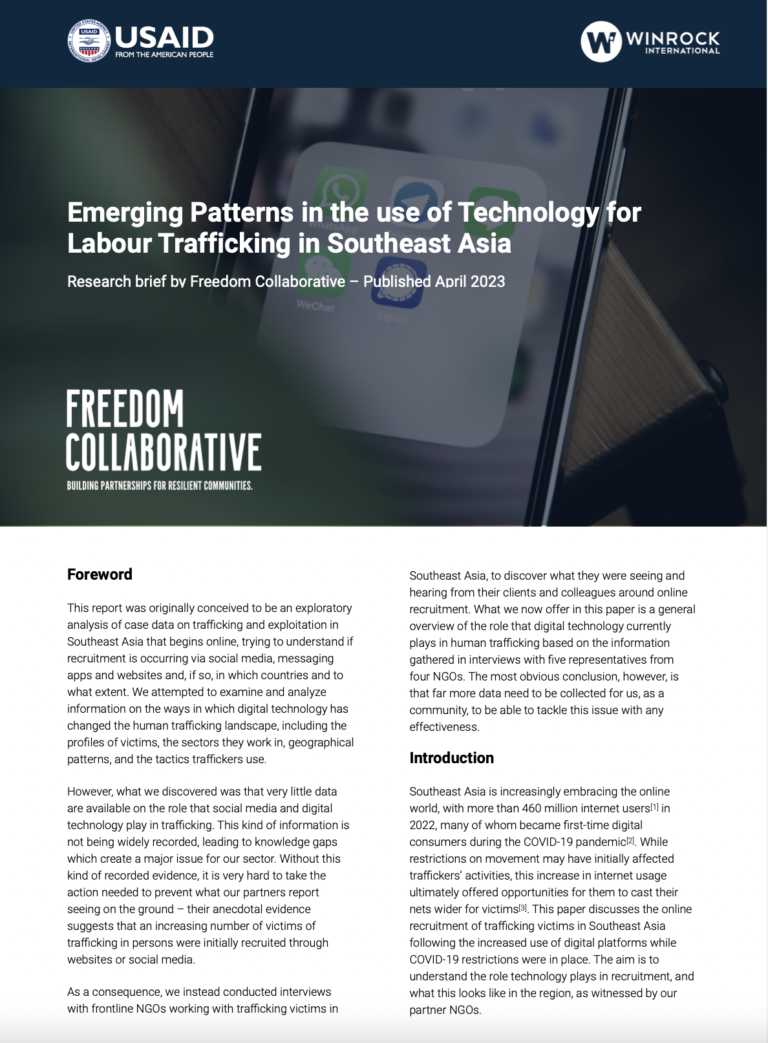This report was originally conceived to be an exploratory analysis of case data on trafficking and exploitation in Southeast Asia that begins online, trying to understand if recruitment is occurring via social media, messaging apps and websites and, if so, in which countries and to what extent. We attempted to examine and analyze information on the ways in which digital technology has changed the human trafficking landscape, including the profiles of victims, the sectors they work in, geographical patterns, and the tactics traffickers use.
However, what we discovered was that very little data are available on the role that social media and digital technology play in trafficking. This kind of information is not being widely recorded, leading to knowledge gaps which create a major issue for our sector. Without this kind of recorded evidence, it is very hard to take the action needed to prevent what our partners report seeing on the ground – their anecdotal evidence suggests that an increasing number of victims of trafficking in persons were initially recruited through websites or social media.

